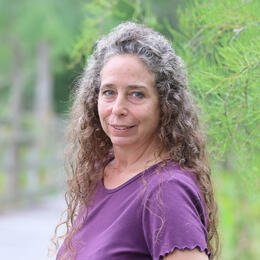Audubon Florida, a vocal proponent of the Everglades for more than a century, is pleased to announce the election of Kelly Cox, Director of Everglades Policy, to co-chair of the Everglades Coalition. The coalition was established in 1968 for the purpose of advocating for the restoration of the Greater Everglades from the Kissimmee Chain of Lakes to Florida Bay, and today engages representatives from more than 60 nonprofits from around the state and beyond.
“The coalition provides a strong, collective voice on issues and programs that impact Everglades health,” says Cox, who first joined the coalition in 2016. She has been on staff with Audubon since 2021.
Coalition members meet quarterly to discuss and vote on issues related to protection and restoration of the Everglades. The coalition influences Everglades policy and restoration funding through strong advocacy with state and federal decision makers, as well as agencies like the Army Corps of Engineers and the South Florida Water Management District, to expedite restoration of the Greater Everglades.
As a Florida native and attorney with a background in natural resources and conservation, Cox was a natural fit for the position. She looks forward to continuing Audubon’s role as a leader in the Everglades community.
“I realize that some folks have been coalition members since before I was born,” says Cox, “and it is an honor to be recognized for what I can bring to this group.”
With many Everglades restoration projects now coming online, it is especially important that Audubon stays ahead of the process and Cox’s role as co-chair will allow for deeper engagement on priority issues. As co-chair, Cox will oversee the annual conference and serve as a liaison between the coalition and elected officials, staff, and stakeholders. Cox sees this as an opportunity to support the group’s recent focus on the larger climate and resiliency nexus to Everglades issues.
“Everglades restoration is one of our biggest opportunities to build resiliency in South Florida,” says Cox. “With increasing climate threats to our communities, economy, health, and environment, restoration helps us sequester carbon, safeguards drinking water supplies, reduces storm impacts, and supports industries that rely on a healthy and thriving River of Grass,” she concluded.
Audubon protects birds and the places they need, today and in the future. Learn more at fl.audubon.org.




